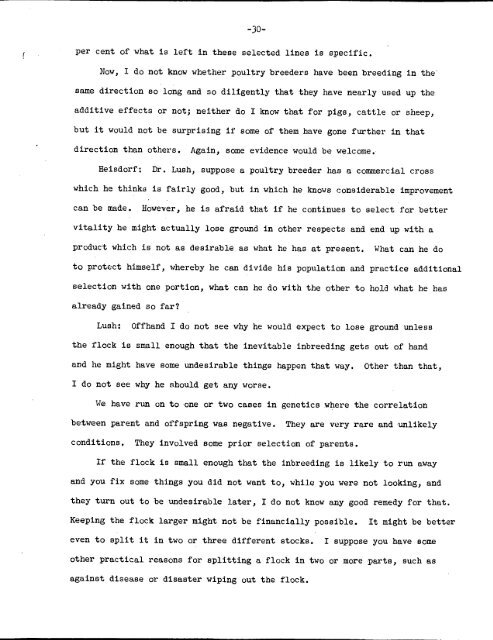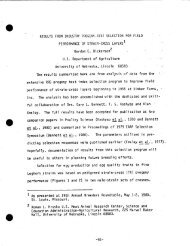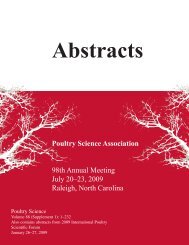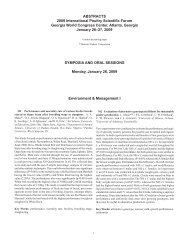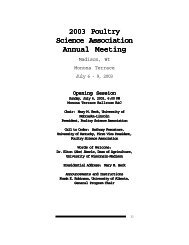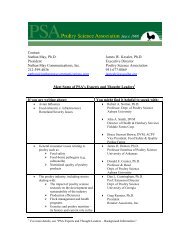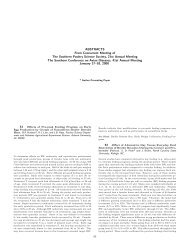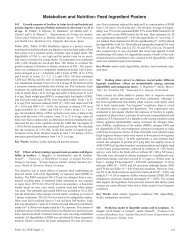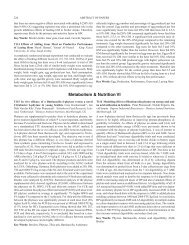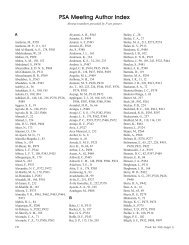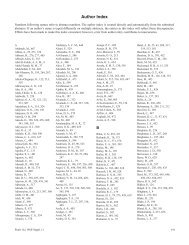Explanation Of Gene Action As Related To Physiological
Explanation Of Gene Action As Related To Physiological
Explanation Of Gene Action As Related To Physiological
You also want an ePaper? Increase the reach of your titles
YUMPU automatically turns print PDFs into web optimized ePapers that Google loves.
-30-<br />
f per cent ofwhat is left in these selected lines is specific.<br />
Now, I do not know whether poultry breeders have been breeding<br />
in the<br />
same direction so long and so diligently that they have nearly used up the<br />
additive effects or not; neither do I know that for pigs, cattle or sheep,<br />
but<br />
it would not be surprising if some of them have gone further in that<br />
direction than others. Again, some evidence would be welcome.<br />
Heisdorf:<br />
Dr. Lush, suppose a poultry breeder has a commercial cross<br />
which<br />
he thinks is fairly good, but in which he knows considerable improvement<br />
can be made.<br />
However, he is afraid that if he continues to select for better<br />
vitality he might actually lose ground in other respects and end up with a<br />
product which is not as desirable as what he has at present. What can he do<br />
to protect himself, whereby he can divide his population and practice additional<br />
selection with one portion, what can he do with the other to hold what he has<br />
already gained so far?<br />
Lush:<br />
<strong>Of</strong>fhand I do not see why he would expect to lose ground unless<br />
the flock Is small enough that the inevitable inbreeding gets out of hand<br />
and he might have some undesirable things happen that way.<br />
Other than that,<br />
I do not see why he should get any worse.<br />
We have run on to one<br />
or two cases in genetics where the correlation<br />
between parent and offspring was negative.<br />
They are very rare and unlikely<br />
conditions.<br />
They involved some prior selection of parents.<br />
If the flock is small enough that the inbreeding is likely to run away<br />
and you fix some things you did not want to, while you were not looking, and<br />
they turn out to be undesirable<br />
later, I do not know any good remedy for that.<br />
Keeping the flock larger might not be financially possible.<br />
It might be better<br />
even to split it in two or three different stocks.<br />
I suppose you have some<br />
other practical reasons for splitting a flock in two or more parts, such as<br />
against disease or disaster wiping<br />
out the flock.


